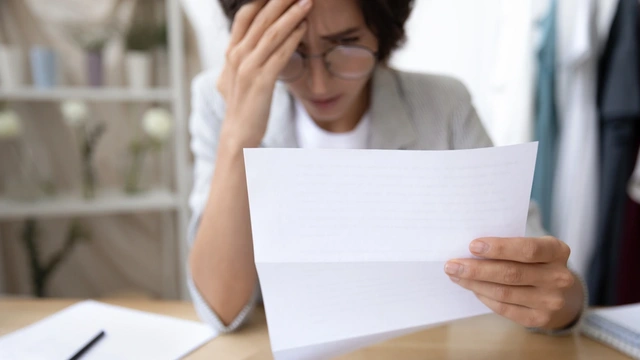Whether you owe £5 or £5,000 won’t matter to your lender, the fact that you aren’t paying it back is what counts – and that’s what leads to a default.
happens when someone consistently fails to make repayments on credit that they’ve borrowed. This could be for a loan, a credit card, or a mobile phone contract for instance. fter payments have been missed repeatedly over a 3-to-6-month period – and you haven't responded to any of your lender’s attempts to contact you – this is logged on your credit file as a default.
If you end up with a default, it can make it harder to get credit in the future.
What is a default notice?
Before your account defaults, you’ll be sent anotice in the post from your lender.
A default notice is a formal letter warning you that your account is about to default. The letter will explain how much you owe and offer you the option to catch up on your payments to avoid the default being recorded on your credit report. You’ll usually get 14 days to pay the total sum of your unpaid debts.
If you make the payment within the time stated in the notice, you could prevent the default. If you can’t afford to pay the sum all in one go, you could offer to pay your lender in instalments, but they may refuse. If they accept, they could still place your account in default.
If you don't make the payment within 14 days, they may begin legal proceedings to recover the money you owe them or hand your debt over to a debt collection agency to manage.
So, we suggest you speak to your lender about why you’re unable to pay, as soon as possible to see if they can do anything to help.
What should I do after I receive a default notice?
If you’ve received a default notice, make sure all the information is correct and the debt is yours.
Your default notice will outline how much money you need to pay and how much time you’ve got to pay it back. If you can, pay the amount in full before that time is up. If you can’t afford to pay the total amount, contact your lender, explain your situation and try and arrange a repayment plan. Whatever you do, don’t ignore the default notice.
If you need any further help, you can contact StepChange for free personal advice on managing any financial difficulties you’re facing.
How will a default affect my credit score?
When you apply for any form of credit such as a credit card, loan or mortgage, the lender will check your credit report to decide whether they think you’re at risk of not paying back any money you borrow.
Having a default on your credit file can suggest to lenders that there’s a significant risk you won’t pay them back, and will bring down your credit score significantly. Once the default is issued, it’ll stay on your credit report for 6 years – even if you then pay back the money immediately, in full. However, it will be removed from your file 6 years after it was recorded.
If you get summoned to court after receiving a default, you also could end up with a County Court Judgement (CCJ), which will affect your credit score even further.
Getting a default doesn't necessarily mean you won't be able to get credit at all. However, it will be more difficult, and you’ll have to find lenders or brokers that help people with bad credit. If you go with a bad credit lender, interest rates will usually be higher and credit limits are often lower.
Adele is a personal finance writer with more than 10 years in the finance industry behind her. She writes clear and engaging guides on all things loans for Ocean, as well as contributing blogs to help people understand their options when it comes to money.
![Email icon]()
Become a money maestro!
Sign up for tips on how to improve your credit score, offers and deals to help you save money, exclusive competitions and exciting products!
Find this useful? Share it with others!









